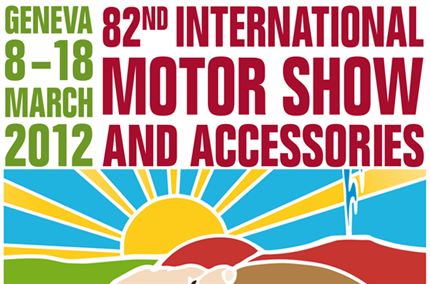
| Monday, March 19, 2012 | Archives | Advertise | Online Buyer's Guide | FLEETSolutions |
Hype Over Electric Cars Subsides At Geneva Auto Show
 After several years of hype about electric vehicles, the auto industry seems to have suffered a jolt of reality. Call it the Volt effect. General Motors’ decision to suspend production of its electric sedan because of slow sales has renewed questions about whether customers are willing to pay extra for the new technology. Partly as a result, there is palpably less bluster about battery-powered cars at the Geneva auto show this year, now that they are not just dreamy concept vehicles with a fashion model draped on the hood, but real products, in some cases with real technical issues. After several years of hype about electric vehicles, the auto industry seems to have suffered a jolt of reality. Call it the Volt effect. General Motors’ decision to suspend production of its electric sedan because of slow sales has renewed questions about whether customers are willing to pay extra for the new technology. Partly as a result, there is palpably less bluster about battery-powered cars at the Geneva auto show this year, now that they are not just dreamy concept vehicles with a fashion model draped on the hood, but real products, in some cases with real technical issues.Tesla, which has a stand in Geneva, has had to respond to an uproar on automotive blogs after the owner of a Tesla Roadster complained that his battery could not be revived after being left unplugged and low on charge for more than two months, contrary to instructions in the owner’s manual. At previous shows in Geneva, a visitor could have gotten the impression that everyone would be driving plug-ins by now. This year, however, the spotlight is back on more traditional engines, albeit with a big emphasis on emissions and fuel efficiency. "There was a lot of talk and less action," Dieter Zetsche, the Chief Executive of German auto and truck maker Daimler said. Zetsche said he continues to believe that, in the coming decades, car makers must find means of propulsion that do not depend on fossil fuels. "There is no alternative," Zetsche said during a meeting with about a dozen journalists. "We believe it is our responsibility to push this technology forward and make it marketable." Daimler is planning to offer a battery powered version of its two-seat smart city car for about $21,000, and continues to develop hydrogen-powered cars. But Zetsche noted that there are still a lot of problems to be solved before emission-free vehicles find a mass market, including lack of charging stations and the continued high cost. Norbert Reithofer, the Chief Executive of BMW, agreed that makers of electric vehicles "have to have a lot of stamina." BMW is on track to launch its electric powered i Series electric city car at the end of next year, Reithofer said in an interview. He agreed that emission-free vehicles are inevitable, in part because of European Union regulations that compel auto makers to radically reduce carbon dioxide output by 2020. BMW has prototypes of the i Series city car and roadster on prominent display in Geneva. But the most important model on display is probably the new generation of the mid-size 3 Series. BMW is also addressing buyer and regulatory demand for more fuel-efficient cars by expanding the range of its smaller cars, including further variations on the Mini and a new line of front-wheel drive cars that is under development. Reithofer said that BMW will continue to optimize the efficiency of gasoline and diesel cars, even as it begins to mass produce electric cars. "We will be in a position to offer a very good mix," Reithofer said. "I need all three." |
 |
NAFA Fleet Management Association 125 Village Blvd., Suite 200 Princeton, NJ 08540 Telephone: 609.720.0882 Fax: 609.452.8004 |








